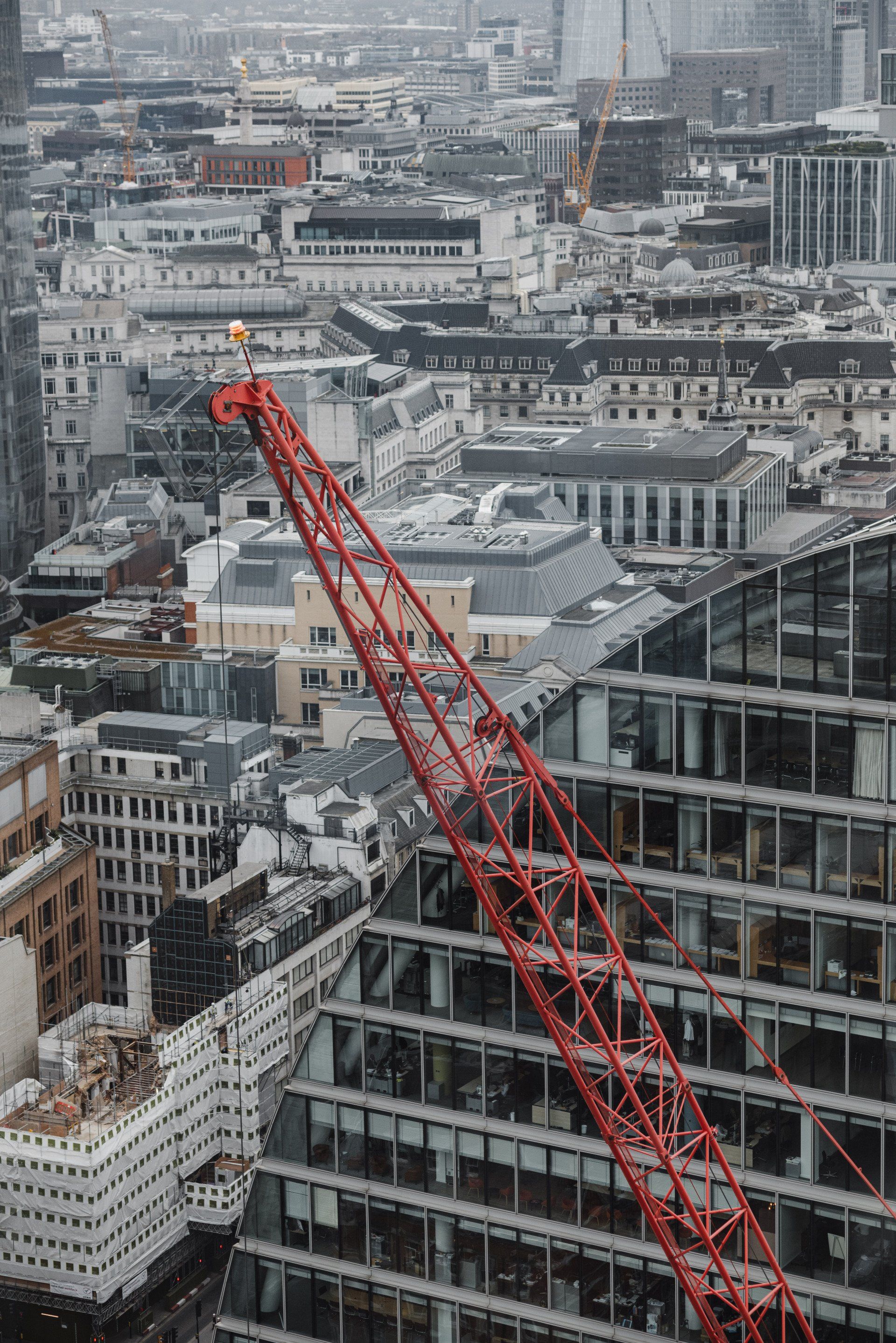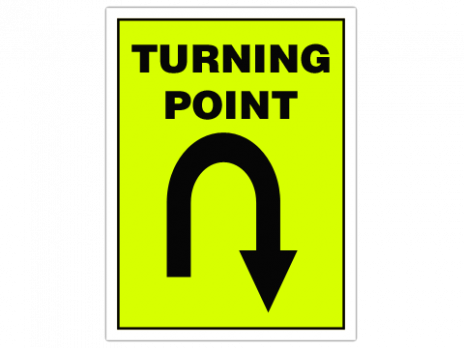Register below to join our Newsletter
Subscribe
Blog

by Sarah Flynn
•
25 Oct, 2021
GOLD PRICES VS HOUSE PRICES Reading the title of this section, you might be sat thinking 'what an earth does the price of Gold have to do with the price of a house?', and the answer is, quite a lot actually. As summarised on the cover of this newsletter, there are a few different other indicators, other than historical property data analysis that can be used to try and predict the UK Property Markets direction. Lots of different asset classes throughout the world can often have either direct correlation on one another, or negative correlation. Direct correlation is where if one asset class rises in price, another asset class does the same thing.; it responds in the same way by also rising in price and vice versa. Negative correlation on the other hand, is when if one asset class is rising in price, another asset class falls in price. There are many asset classes that behave in this way. Gold Prices and House Prices have a strong history of negative correlation. When house prices drop, gold generally increases in value. As an example, in the mid 2000's house prices particularly in the UK and the USA were reaching their peak, and at the same time, the price of Gold was considerably cheap. But when the housing bubble burst, the price of gold accelerated north. And when the house prices bottomed, the price of gold peaked. Then, the housing index started its recovery, while the gold entered into a downward trend. So Gold might be a good place to look to help give us an indication of what house prices might be doing next. HOUSE BUILDER/ CONSTRUCTION SHARES Another good way to look for clues as to which way how prices will go is to take a look at how some of the major house building companies are doing financially. Taking a quick look at the share prices of companies such as Redrow, Taylor Wimpey, British Land and Persimmon, often provide insight as to how the UK Market is doing overall and what its next move might be. And you don't have to be an expert on shares to understand what to look for. Free apps such as Yahoo finance will show you an abundance of share data on these big building tycoons in very simple graphs. You'll generally be able to see years worth of share prices on a single line graph, and you'll be able to see the highs and lows of the share price. Generally speaking, if the shares are low, that tells you the property market is not doing very well, but if the share price is high, then property prices are high - if the share price looks to have reached a peak, this could also indicate that market is about to take a downward turn.

by Sarah Flynn
•
25 Oct, 2021
You'll see from graph (above) that both construction costs and tender prices are continually on the rise, and we think thats here to stay. They're actually increased by 3.6% from Q1 2020 to Q1 2021. Whats causing the issue? Well naturally, over time, the cost of everything always increases due to inflation, however the price hikes for construction have heavily spiked over the last 12 months due to two factors; 1. The global wide current supply chain issues we are experiencing. In the laws of supply and demand, the harder it is to obtain something, the more valuable it becomes 2. Inflation is increasing at a much faster pace (due to various current economic factors), and concrete, steel and timber tend to be the materials that are most affected by inflation If you couple these with the fact that many property projects were put on hold throughout the pandemic, there is now a sudden flurry of investors desperately trying to get projects over the line - it's really no surprise that builders are in high demand and are having to charge much higher prices.

by Sarah Flynn
•
25 Oct, 2021
- Halifax reported that the average house price climbed again in August with a monthly increase of 0.7% which, compared to the previous months, is still showing signs of the rate of house price inflation further slowing to a five-month low of 7.1% - The average UK house price is now £262,954, beating the previous record of May's £261,642 - Nationwide House Price Index shows that nominally house prices are 32% above the 2007 peak, real (inflation-adjusted) prices remain 10% below 2007 highs - Greater London continues to struggle compared to other regions, registering just a 1.3% annual increase in August A bit more detail; Whats does it all mean? Essentially, what the data tells us is that the housing market is beginning to slow down. After several months of post pandemic fuelled rocket-style prices increases, things are finally beginning to cool off. Are we heading for a crash? Nope. We don't think so anyway. Despite the considerable slowing of market, we're still expecting a further upward trajectory until circa 2025/26. Property cycle experts tell us that were currently at the start of a 5 year growth period, so the prices should continue to increase - albeit at a slower and more normal pace than the last 12 months. A further argument to support this would be that real adjusted inflation prices remain 10% below 2007 pre crash highs, so if we use this as to gauge the next crash, we are some way away from this just yet. So why are prices slowing? The frenzy of the post Covid house movers is naturally beginning to wear off, and the Stamp Duty Holiday is drawing to a close - it was inevitable that we'd see an organic mellowing of house prices towards the end of 2021. Why is London struggling? London markets operate in a different way and on a different cycle to the rest of the UK property market. Prices peaked in Central London around 5 years ago and have been on a steady decline ever since. The pandemic has only added to this with so many people wanted to leave to city for good to get away from big crowds.

by Sarah Flynn
•
25 Oct, 2021
Our personal experience of letting agents has always been a positive one. Our own portfolio is managed by letting agents and we were exceptionally fortunate to have landed on our feet with an agent who is excellent in their industry - however, this is not the case for everyone; and equally, we know many people who self manage their portfolio and much prefer it that way. We thought we'd take a minute to reflect the pro's and con's of both avenues for others who may be in the same dilemma! Letting Agent Managed Portfolio: Pros - Time and Freedom; not bound by issues from tenants - Experience and knowledge of dealing with tenants - Have correct systems, forms, procedures in place to stay on the right side of the law and ensure as a landlord you are protected Cons - Can be very costly, taking away more of your monthly profit - Can be hit and miss in terms of the quality of service and types of tenants they find - Lack of control over your own portfolio, making decisions on your behalf Self Managed Portfolio: Pros - Complete control over your portfolio - Great cost saving, more monthly profit for you - Get to know your tenants on a personal level, which helps with rapport building and keeping tenants longer term Cons - Loss of time and freedom; tenants could call anytime with a problem that you'll have to sort out - Not as knowledgeable on processes/ procedures/ regulations around renting - Voids can take longer to fill as don't have the same level of marketing tools as a letting agency

by Sarah Flynn
•
25 Oct, 2021
Raising Capital; What are the options? If you're already in property in any capacity, it's safe to say that you will be very aware that it is one of the most capital intensive businesses out there! At times. particularly in periods of rapid growth in a property business, it can quite literally feel like you may never be profitable again with the amount of money required for projects these days. There are many financial products out there that want to help us, but let's be honest, they all fall short of what we really need. We can all get a 75% Buy-To-Let mortgage with a half decent credit score, but what about the other bit? The deposit bit, or maybe the refurb money - Thats where a lot of people get stuck. The bottom line is that to sustain and grow a property portfolio, you need to get creative in coming up with ways to keep raising that cash, to ultimately enable you to keep moving forward! With that in mind, we thought we'd highlight a number of different methods that have been tried and tested to give you some ideas of how to keep that capital flowing and your business growing! 1. A Bank Loan It might seems silly, but a standard loan from a high street bank is probably the cheapest and quickest option to get lending in the current economic climate! If you're falling short of a bit cash for a project, why not try your luck with a high street bank? With interest rates as low as circa 3%, and the money potentially put into your account the same day, whats not to love! 2. Private Investor Loan Understandably, a private investor loan has become one of the most popular amongst the modern day property developer. Many believe this is a win-win scenario as the individual lending the capital gets a much better return on their hard earned cash than in any UK bank account right now, and the developer gets cash without any of the red tape involved from a commercial lender. If you know someone with some dosh lying around.... 3. Gifted Money For obvious reasons gifted money is our favourite; because its FREE! For any of you are lucky enough to have any parents, relatives, perhaps even friends that you know are planning on leaving you a hefty sum when they depart from this world, why not ask for it now? Let them see you flourish whilst they're alive! Or maybe you know someone who has so much money they are willing to just give you some anyway - either way, free money is the best type of money! 4. 100% LTV Bridging Loan We are aware that for many of you, the idea of 100% Lending seems like a made up fantasy; but trust us when we say it exists! This option is understandably more specialist, and requires an expert broker, but is definitely achievable for some people. The set up is usually that the bridging company is willing to lend around 65% of the value of the property and 100% of the development costs, and then the remainder 35% of the cost of the property can be secured against another property you already have (providing there is enough equity in it) ; such as your own residential home or another investment property. 5. Funding Groups A very modern and innovative way of raising capital is through many of the newly formed funding groups. This could be through sites such as fundingcircle.com, gofundme.com, angelinvestmentnetwork.co.uk etc. Generally you will pitch your deal on the platform and then potential private investors, or groups of private investors can contact you if they are interested in what you have to offer. 6. JV Although the set up of a JV from a legal perspective can be complex, and advice from a number of professional bodies must be sought before entering into an agreement; Joint Venture's can be incredibly powerful, especially when looking at larger projects. The wonderful thing about a JV is that the terms are entirely set by the parties involved, so the arrangement can be anything you like! For example, it could be that one party puts all the capital in, whilst the other party brings all the skills and knowledge or property, and then the profit from the project is split 50/50 at the end. If you're a property expert but have no capital, and you know someone with lots of capital but no expertise, a JV might be a perfect solution!

by Sarah Flynn
•
17 Feb, 2021
As most of you will be aware, unless you have been living under a rock - the UK Property Market, is experiencing an incredible 'Boom'! Property prices have continued to sore following the reopening of the market post 1st lockdown, with eager and excitable buyers taking huge advantage of the current stamp duty holiday, coupled with a further flurry of folk who are simply sick of seeing the same 4 walls due to the pandemic, and are desperate for a permanent change of scenery. This, of course, has been bad news for the investor population, who have been waiting a considerable amount of time now for prices to plato. However - there have been a few indicators since the start of 2021 that the market could finally be about to turn, and the investment crowd can finally spend their money. The first and most obvious of these things are the ever emerging property headlines that have continued to trickle in since the new year, about property prices taking a dip of around 0.3% month on month since January, and experts predicts that this steady decline will take a very sharp turn in April as home-buying momentum seems to be dying off. Another thing to consider is the wider economic situation. The government is currently reporting an increasing unemployment figure, a sky high divorce rate, and a surmountable debt bill due to a number of lending schemes; all of which will inevitably result in people being unable to afford to buy homes in the not too distant future. With an experienced investor hat on, another tell tale sign of the a market that is about tumble, is when noticeably large developments - such as hotels, shopping centres, large housing projects, big blocks of flats - considerably slow down the pace of work, or even grind to a halt mid-project. This is usually a sign that the money being pumped into these developments has stopped flowing, and things are getting tougher economically. Recently there's been a few of these cropping up. Keeping with the theme of investors; any property expert who's lived through other major world crisis' will tell you that as a general rule, the property market tends to get affected by a global emergency around 18 months after the start of said disaster. Baring this in mind, Covid-19 started around early December 2019, so you would expect to see property prices take a downward turn in around May 2021. The final thought in all of these potential indictors is the 18 Year Property Cycle. This is an economic cycle that many believe in religiously in the property world. The cycle states that within a period of 18 years, there will be highs and lows of property prices at the same points every time within the 18 years (Picture Below). This is important to highlight as according to experts who study this, assuming that year 1 is 2007/ 2008 after the last economic crash, then fast forward to 14 years later, taking us to 2021- you can see that we are right at the tip of the iceberg.

by websitebuilder-hub
•
04 Jan, 2021
2020 brought many things to our door - the pandemic being the biggest - but everything from Blacks Lives Matter to the Beirut Explosion created uncertainty and disarray in the world; thus causes uncertainty and disarray in the economy housing market. The mini 'Boom' which presented itself in the UK market after the 1st lockdown, lasted longer than most experts would have anticipated, leaving savvy investors sitting on their hands until the chaos lifted. The overall opinion now is that 2021 is the year to buy property, as the prices begin to drop through the recession - and its never been more important to go back to basics to ensure that you are making a good investment decision. We believe there are 5 key considerations to ensuring you make a safe property investment.

by websitebuilder-hub
•
04 Jan, 2021
What's Hot In Property Post Pandemic With the long awaited introduction of the COVID-19 Vaccine now firmly underway, the world begins to try and find a new 'normal', with leading business experts beginning to see the early signs of how their particular field may be affected, and how they will need to adapt and change to ensure they survive in the post pandemic world. Property is no exception. After spending time analysing the market and speaking with some of the front line team in the property world such as estate and lettings agents, it is becoming increasingly apparent that house movers are setting new criteria when it comes to seeking out their dream home. Ensuring that you are at the forefront of this demand is essential, and that you are buying and designing properties that meet the new needs of the market. Cleanliness It's probably no surprise that both buyers and prospective tenants alike are a little 'on-edge' at the moment when it comes to cleanliness. A real hot topic, and one that can be quite a turn off when looking at your potential new pad in a bid to try and minimise your exposure to COVID. If you're currently trying to sell your home, look into getting some professional cleaners round to perform a deep clean to ensure that people viewing your property feel safe. Outdoor Space Possibly the biggest change in market demand has been the shift from a garden being a luxury, to a necessity. This need was initially driven by the fear of a 2nd COVID wave back in July 2020, and people wanting peace of mind to know they will have the ability to be able go into a safe outdoor space, should another lockdown occur - and it did - which only drove the demand for an outside area even higher. In a recent survey carried out by SpareRoom, the figures showed that a staggering 49% of Londoners plan to move out of the capital for good once the pandemic is over, to find bigger properties, that are more value for money, with a garden or outdoor space. Extra Rooms Does anyone remember when 'working from home' was a cop out for a hangover day? Well, not anymore. As hundreds of thousands of Britains are no longer allowed in their place of work, theres been no option but to purchase a wooden desk and a wheelie chair. The reality is that in this current climate people need extra space or additional rooms to create a pop up office at a moments notice! .

by websitebuilder-hub
•
04 Jan, 2021
The world of HMO's can be a complicated one. Lots of unrelated people sharing the same spaces, with lots of rules and regulations attached to it - it can all seem quite daunting. However, if you get clued up and have an appetite for some degree of risk, it can prove to be a very lucrative strategy.
